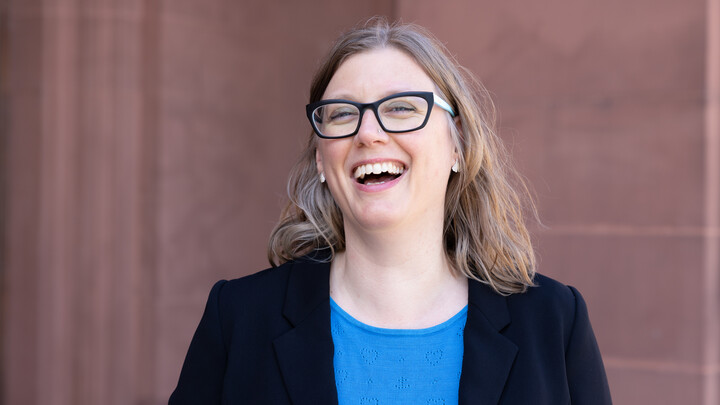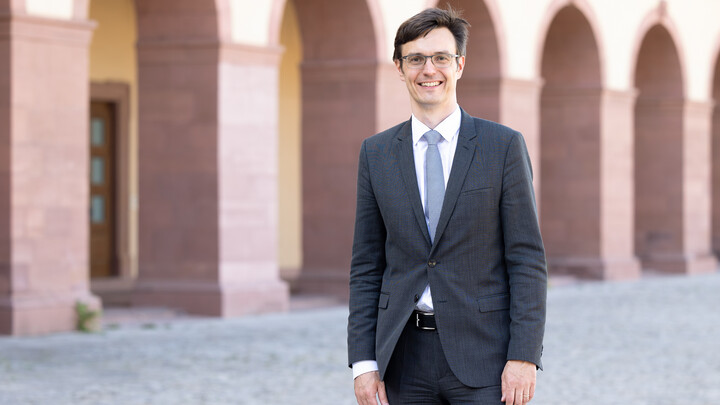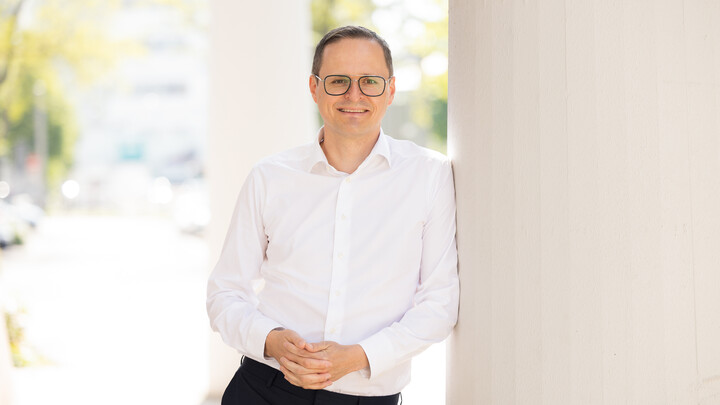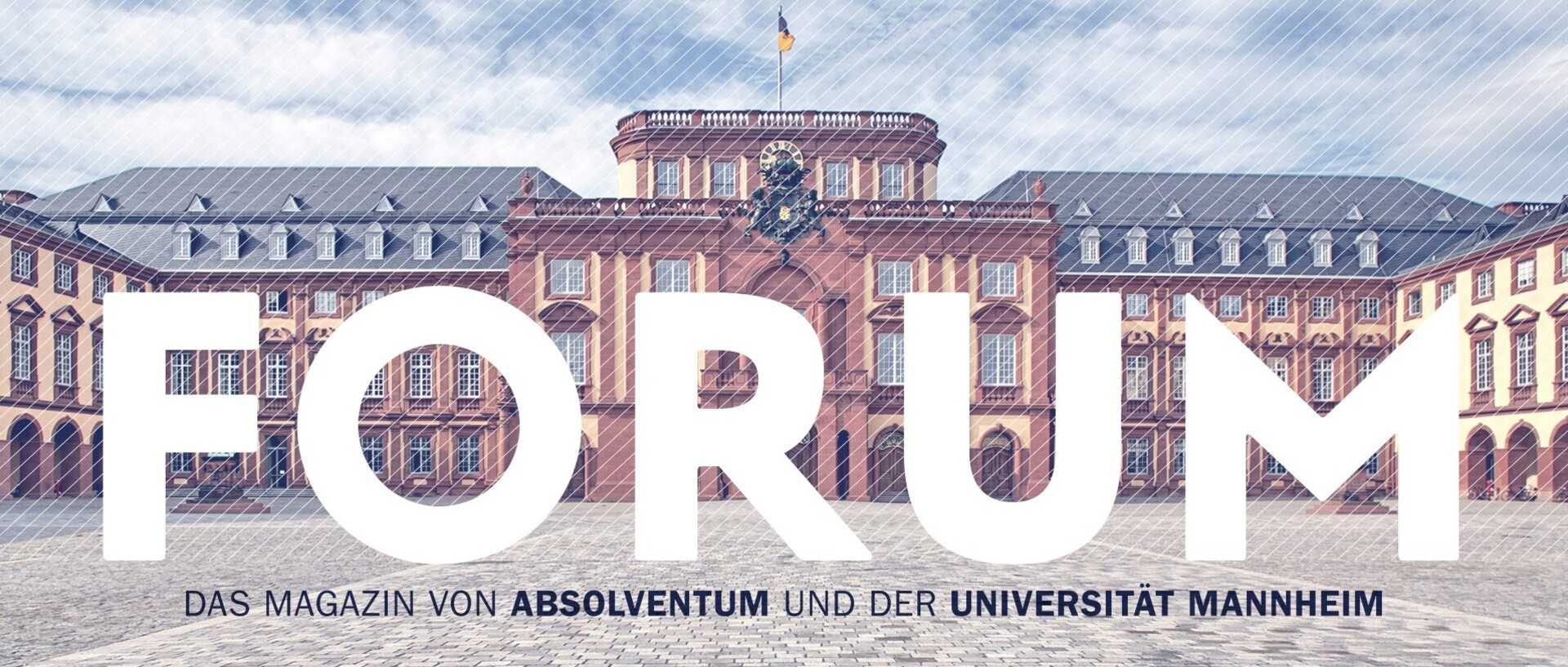Welcome at the University of Mannheim
Prof. Dr. Teresa K. Naab

Chair of Digital Communication
Comment sections, chat forums, messaging services: News sites and social media offer many ways for users to interact and share their views. But how will users behave if the comments are full of hate, sexism, and discrimination? How might they react if they read hate speech? These are some of the questions being investigated by Professor Teresa K. Naab, who in February 2022 succeeded Professor Angela Keppler as Chair of Digital Communication. “I’m looking at how politely, aggressively, or reasonably discussions are conducted on social media and in comment sections, and at what structural factors affect the quality of discussions.”
She is especially interested in key social issues with political implications. And although public debates on this topic often focus on regulating big platforms like Meta, her research concentrates primarily on individual users. This is connected to the second main topic that Naab works on, media literacy. How can we educate users to share their views in a more friendly, constructive, and socially responsible way? “I look forward to productive collaboration with my colleagues at the Department of Media and Communication Studies. Mannheim appeals to me because the team fits together so well, with everyone’s strengths complementing each other.”
Main research interests
- Use and impact of media
- Digital communication
- Methods of empirical social research
Previous positions (selected)
- 2017 to 2019: Interim professorships at LMU Munich and Johannes Gutenberg University Mainz
- 2014 to 2022: Senior Researcher (Akademische Rätin) at the Department for Media, Knowledge and Communication, University of Augsburg
- 2006 to 2014: Research Associate at the Department of Journalism and Communication Research, Hanover University of Music, Drama and Media
Prof. Dr. Florence Oloff

Professor of German Linguistics and Multimodal Interaction
If you think about new media and older people, a host of stereotypes will immediately leap to mind. But what is the reality of older people’s digital practices and skills? Over the next four years, Florence Oloff will be exploring this topic in her project Navigating the Digital Everyday Life: Elderly Participants’ Use of Mundane Technologies in and for Social Interaction. In January 2022, Oloff was appointed Professor of German Linguistics and Multimodal Interaction at the University of Mannheim and the Leibniz Institute for the German Language (IDS). Her plan for the project is to collect video and audio data from recordings of adult education classes, private conversations, and sales encounters. “Multimodal interaction scholars believe that language involves not just the spoken word but also the body,” explains Oloff. A nod, a blink, a barely perceptible glance away—all these and more will be meticulously documented and analyzed. “Once we’ve produced the transcripts, we can search them for a particular word, gesture, or sentence construction. The aim is to identify similarities across our myriad recordings, so that we can better understand communication patterns and contemporary language use.” Following spells in France and Switzerland, Oloff spent the last four years in Oulu, Finland. “I very much enjoy the diverse, urban environment here in Mannheim. It’s a city right at the heart of Europe with good transport links. That means I can work internationally without needing to fly.”
Main research interests
- Spoken language and multimodal communication
- Use of technology in social interactions
- Discourse markers and “filler words”
- Co-construction of utterances
- Repair sequences and negotiation of meaning
- Cross-linguistic comparison (Czech, French, German)
Previous positions (selected)
- 2014 to 2016: SNF Ambizione Research Fellow at the University of Zurich. Switzerland
- 2017: Junior Research Fellow at Walter Benjamin Kolleg, University o Bern, Switzerland
- 2018 to 2021: Assistant Professor of Multimodal Interaction and Discourse at the Research Unit of Languages and Literature, University of Oulu, Finland
Prof. Dr. Erik Röder

Chair of Civil Law, German and European Commercial Law, and Corporate Tax Law
Professor Erik Röder is a legal scholar specializing in different German company types and their tax implications. For instance, when does it make sense for tax purposes to set up a GmbH & Co. KG? And what are the benefits of a simple GmbH? His combination of research interests is unusual, which is why he is so pleased about his new position at Mannheim: “Mannheim is one of the few universities in Germany with a professorship that combines civil law, company law, and tax law,” he explains. “It’s more common to pair tax law with public law.”
Another thing that sets his research apart is its focus on legal policy. This can be traced back to his previous work at the Max Planck Institute for Tax Law and Public Finance, where he was heavily involved in policy consulting. For instance, he conducted research for the German government on how to create a more favorable taxation regime for start-ups in Germany. In Mannheim, he looks forward to working with colleagues in the Business School, both across disciplinary lines and within his own department. “There’s no other department with three tax law specialists anywhere in Germany.”
Main research interests
- Corporate tax law
- Company law
- Civil law
- Comparative law
Previous positions and qualifications (selected)
- 2011 to 2021: Senior Research Fellow at the Max Planck Institute for Tax Law and Public Finance, Munich
- 2018: Habilitation at LMU Munich
- 2010: Zweites juristisches Staatsexamen (second state examination in law)
- 2009: Doctorate at University of Bayreuth
- 2008 to 2010: Juristischer Vorbereitungsdienst (legal preparatory training) at Munich Court of Appeals (OLG Munich); Research Associate at the Max Planck Institute for Intellectual Property, Competition and Tax Law, Munich
Prof. Dr. Markus Strohmaier

Since January 2022, Prof. Markus Strohmaier holds the “Chair of Data Science in the Economic and Social Sciences” in the Area “Information Systems” at the University of Mannheim Business School. The Dean of the Business School, Joachim Lutz, and the entire Management team of the Business School wish Mr. Strohmaier a good start in Mannheim. Previously, Prof. Strohmaier held the “Chair for Computational Social Sciences and Humanities” at the RWTH Aachen University.
“Science beyond rigid subject boundaries – that is what I would like to work for with joy and a ‘long breath’,” says Strohmaier. The special research profile of the University of Mannheim Business School is most appealing to him: data analytics will become increasingly important for business research and for data-driven companies. The Business School offers excellent conditions and frameworks for the research and application of data analytics, for example at the Management Analytics Center or the Mannheim Center for Data Science. “I am looking forward to strengthening the Business School’s research with my focus on data science methods and applications,” adds Prof. Strohmaier.
Main research areas and teaching
Prof. Strohmaier’s main research areas include data science in the economic and social sciences, with a particular focus on textual and relational data processing. The focus is on the development and application of methods for analyzing human behavior using new forms of data.
Master’s students can look forward to exciting courses in the field of Network Science and Text Mining beginning in the upcoming spring semester.
More information about Prof. Strohmaier's profile will be available here and in the near future on his Chair's page.
Further professional stages
In addition to his position at the University of Mannheim Business School, Prof. Strohmaier is Scientific Coordinator for “Digital Behavioral Data” at the GESIS Leibniz Institute for the Social Sciences, which is, among other places located in Mannheim. From 2013 to 2017, he established and led the department “Computational Social Science” there. Previously, from 2007 to 2013, Strohmaier worked as an Assistant Professor at the Graz University of Technology with, amongst other things, a one-year overseas stay as a Visiting Assistant Professor at Stanford University (2011–2012). Markus Strohmaier had previously worked at the Graz University of Technology, having received his PhD from the Faculty of Information Systems there in 2004.
